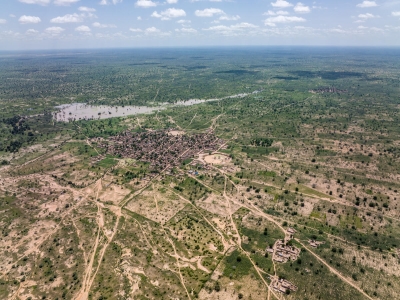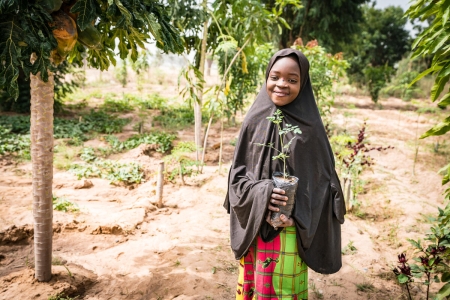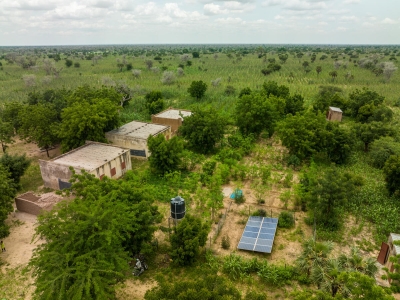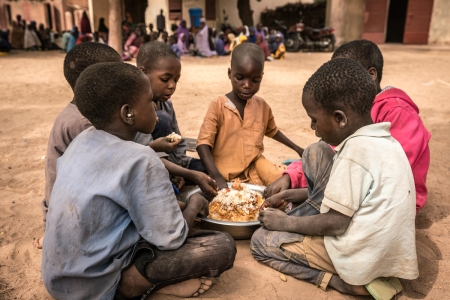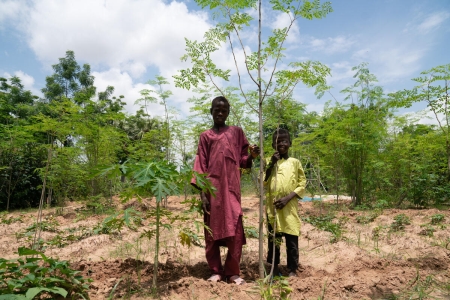How A Garden In Niger Is Improving School Meals
Welcome to Niger, one of the world's most vulnerable countries to the adverse effects of climate change. A landlocked country in West Africa, nearly 80% of its land lies in the Sahara desert. As such, Niger is highly affected by desertification, land degradation and extreme weather. Multiple crises hit the country in 2020 and 2021, from COVID-19 and rising criminality to droughts and unprecedented floods, compounding food and nutrition insecurity in the country of 25 million people.
Niger has one of the highest population growth rates in the world, and the effects of climate change and conflict exacerbate hunger and poverty in the country. Each year, more people are competing for increasingly scarce resources.
To break the cycle of hunger and support communities to adapt to climate shocks and stressors, the UN World Food Programme has implemented an integrated resilience program across the G5 Sahel countries: Burkina Faso, Chad, Mali, Mauritania and Niger.
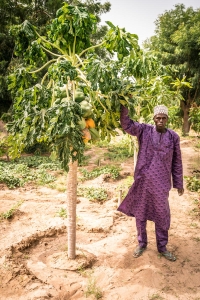
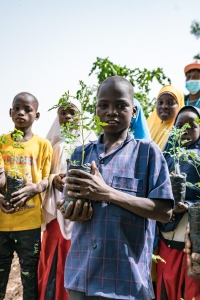
By boosting resilience, we mean helping people protect themselves and their communities from shocks and stressors. Some of the ways we do this is by:
- bringing degraded land back to life
- enabling access to food and healthy diets
- getting children back to school, and
- developing value chains to boost incomes and green jobs.
Because one thing is clear: healthy ecosystems are the very foundation for people's wellbeing and livelihoods in the Sahel.
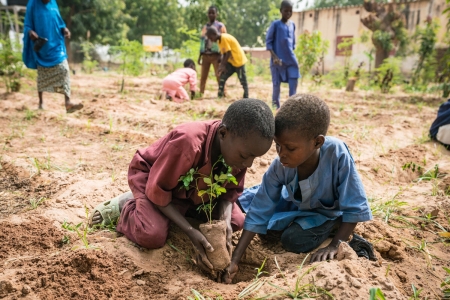
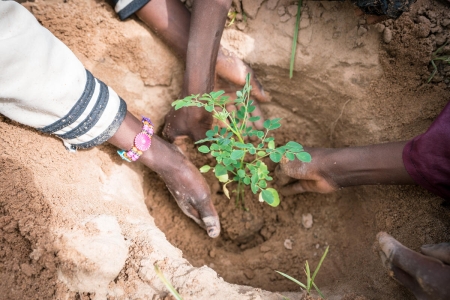
Most people living across the Sahel region are herders and farmers — they depend on the land for their food and their livelihoods. Land degradation, in fact, is one of the most insidious and unnoticed threats to food security, nutrition, and food systems.
That’s why WFP is working closely with communities across the Sahel to bring land back to life!
One of WFP's projects is supporting the school gardens of Rafa, a rural village in Niger. Here, students learn about environmental stewardship and agricultural practices through hands-on classes. The school garden has a solar-power irrigation system to help grow nutritious food and reduce the hardship of farming, even during the dry season. The garden grows fruits and vegetables which are used to prepare school meals for nearly 200 students each day.
Depending on the season, the garden grows corn, beans, okra, papaya, cassava, corn, onions, cabbage, potatoes and moringa. Moringa, a drought-resistant plant, is a superfood that is rich in antioxidants, helps to boost metabolism and regulates blood pressure. It is used for cooking across the Sahel region.
The school garden not only complements the daily school meals, but it is also used to teach about agricultural techniques, organic fertilizer and good nutrition practices, knowledge that the children will take home with them and implement in the future.
